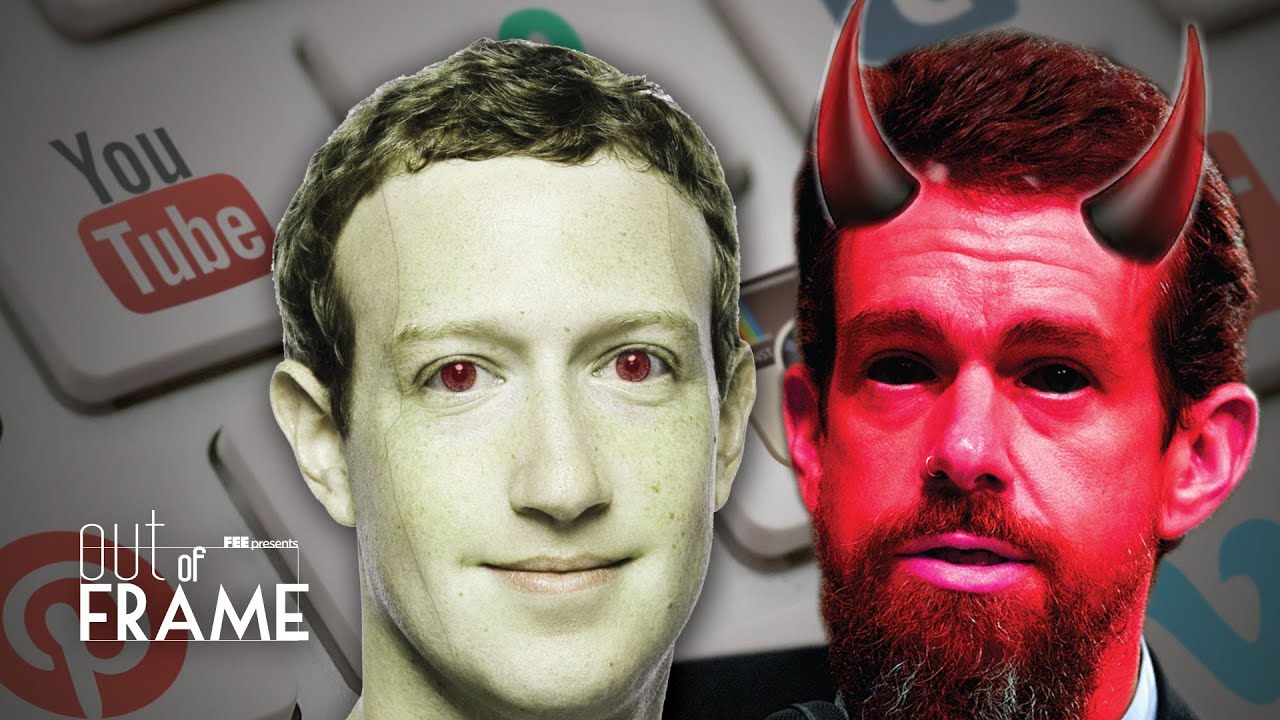Both sides: The debate over social media and censorship
Summary
TLDRThe video script discusses the banning of President Trump from social media platforms like Snapchat, Twitter, and Facebook, igniting debates on free speech and the power of tech companies. Experts debate whether these platforms have too much control over public discourse, while acknowledging Trump's incitement of violence as a reason for the bans. Concerns are raised about the potential for driving dissenting voices underground and the risk of increased violence due to perceived censorship.
Takeaways
- 📢 Social media platforms like Snapchat, Facebook, Instagram, and Twitter have banned or suspended President Trump's accounts due to policy violations, sparking a debate on free speech and platform control.
- 🔍 Ethan Zuckerman, a media professor, believes that social media sites are within their rights to ban users who do not follow their policies, especially when it comes to inciting violence.
- 🗣️ The banning of President Trump's accounts has raised concerns about the control that social media platforms have over public discourse and the potential for them to silence voices, including those of political leaders.
- 🤔 There is a debate on whether social media companies have too much power and whether the government should intervene to regulate their actions regarding content moderation and user bans.
- 🚫 The platforms argue that President Trump's posts were inciting violence, which goes against their community guidelines, justifying their decision to ban him.
- 👥 Some experts, including a UCL law professor, suggest that while private companies can ban users, banning an elected official with a large following might be an excessive use of their power.
- 🤨 The question of whether Twitter's actions were consistent with their own policies is raised, with the understanding that the process is not transparent and not subject to court review.
- 🔑 There is a concern that the decision to allow or silence elected officials or leaders is controlled by the business interests and the powerful people who run these social media platforms.
- 🚧 The banning of President Trump from social media platforms may drive his followers to less monitored platforms, potentially leading to darker and more dangerous conversations.
- 🔄 The banning has led to some of his followers feeling aggrieved and that their speech is being suppressed, which could lead to further alienation and a small fraction becoming more likely to act violently.
- 📣 President Trump released a White House video condemning the ban as an assault on free speech and urged Americans to listen to each other rather than silence one another.
Q & A
What action has Snapchat taken regarding President Trump?
-Snapchat has banned President Trump, following a series of suspensions and bans from other social media platforms like Facebook, Instagram, and Twitter.
What is the debate ignited by the social media ban on President Trump?
-The debate is about whether social media platforms have the right to ban a political figure, and the implications this has on free speech and the control of public discourse.
What is Ethan Zuckerman's opinion on social media platforms banning President Trump?
-Ethan Zuckerman believes that social media sites are within their rights to ban users who do not follow their policies, especially if they are encouraging violence.
What concerns does Ethan Zuckerman express about the control social media platforms have over public discourse?
-Zuckerman is concerned about the extent of control that platforms like Facebook and Twitter have over public speech and is unsure if it's a good idea to have such power in the hands of a few companies.
What is the argument against social media platforms having too much power?
-The argument is that these companies have the ability to silence even the leader of the free world, which raises questions about their influence on public discourse and the potential for abuse of this power.
What alternative public sphere is suggested to address the concerns about social media platforms' control?
-The suggestion is to build a public sphere where people have control over the platforms they use, possibly through community governance and decision-making.
What does the UCL law professor think about the banning of elected officials from social media platforms?
-The law professor believes that while private companies can ban users, banning elected officials with large followings may be an excessive use of their power.
What is the concern about the potential for violence following the ban of President Trump on social media?
-The concern is that by closing off one channel of communication, people may find less monitored channels where conversations can become darker and potentially more violent.
What is the potential impact of the ban on President Trump's followers?
-The ban may make his followers feel aggrieved and that their speech is being suppressed, potentially leading to alienation from the system and, in a small fraction of cases, an increased likelihood of violent action.
What did President Trump say in his White House video released after the social media bans?
-In the video, President Trump condemned the bans as an assault on free speech and urged Americans to listen to each other instead of silencing one another.
Outlines

此内容仅限付费用户访问。 请升级后访问。
立即升级Mindmap

此内容仅限付费用户访问。 请升级后访问。
立即升级Keywords

此内容仅限付费用户访问。 请升级后访问。
立即升级Highlights

此内容仅限付费用户访问。 请升级后访问。
立即升级Transcripts

此内容仅限付费用户访问。 请升级后访问。
立即升级浏览更多相关视频

Social Media Mockingbird: The Hidden Truth Behind Your Feeds

The Social Dilemma Is Dangerously Wrong... Part I

Trump-Musk : la force du réseau | L'Essentiel du Dessous des Cartes | ARTE

Review Film THE SOCIAL DILEMMA (BAHASA INDONESIA)

A1 English Listening Practice - Social Media Apps

History of social media. Beginning of Social Media. सोशल मीडिया का इतिहास |
5.0 / 5 (0 votes)
